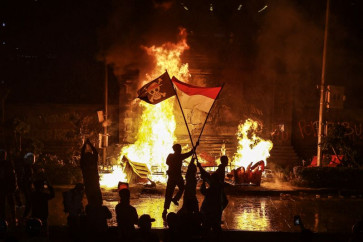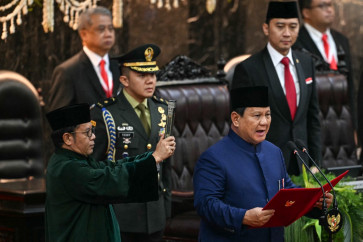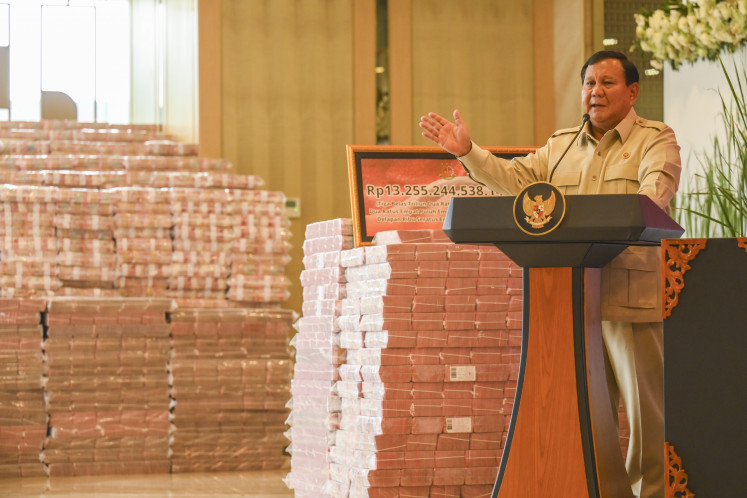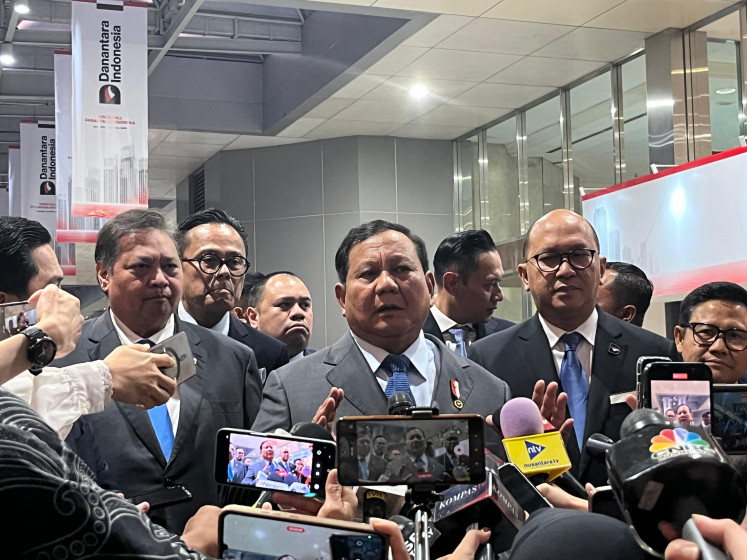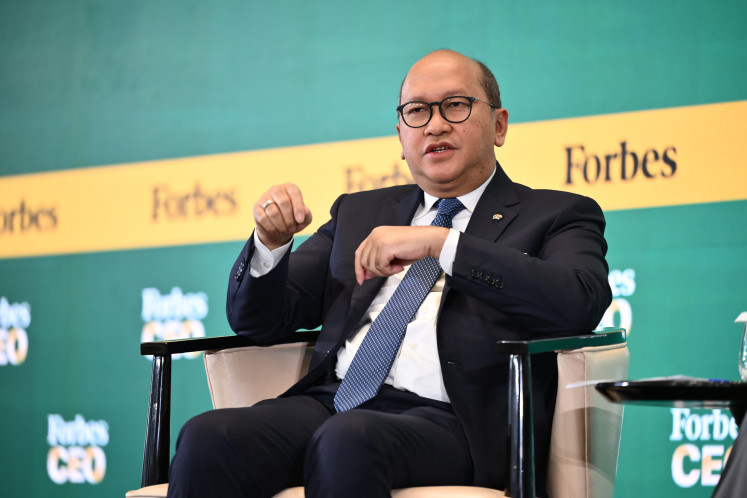Popular Reads
Top Results
Can't find what you're looking for?
View all search resultsPopular Reads
Top Results
Can't find what you're looking for?
View all search resultsASEAN Declaration should be ‘equally powerful’ to UN’s
The ASEAN Intergovernmental Commission on Human Rights (AICHR) has finalized a draft version of the ASEAN Declaration on Human Rights (ADHR), which will be presented to the ASEAN Ministerial Meeting for deliberation in Phnom Penh in July
Change text size
Gift Premium Articles
to Anyone
T
he ASEAN Intergovernmental Commission on Human Rights (AICHR) has finalized a draft version of the ASEAN Declaration on Human Rights (ADHR), which will be presented to the ASEAN Ministerial Meeting for deliberation in Phnom Penh in July. Indonesia’s permanent representative to ASEAN, I Gede Ngurah Swajaya, talked to The Jakarta Post’s Tassia Sipahutar and Yohanna Ririhena on the issue.
Question: Why did ASEAN decide to develop its own human rights declaration?
Answer: ASEAN has always realized that as an international organization, it cannot afford not to acknowledge human rights as universal values or norms. Indonesia initiated talks on a regional human rights body in 1997, but not all member states were confident enough to form the body. Talks continued through a second-track group.
In 2003, when Indonesia assumed [ASEAN’s] chairmanship, we told the other members that it was high time ASEAN agreed to these universal values and norms and adopted them as our own. That’s why we created the Bali Concord II and Vientiane Action Program, which gave a mandate for the creation of an ASEAN Charter.
During the drafting process, we always wanted to have an article that stipulated the formation of a human rights body — even though we didn’t have the support of all the member states back then.
The AICHR, which was formed in 2009, is the implementation of the charter. Article 14 of the charter specifically mentions the establishment of an ASEAN human rights body. The presence of a declaration will emphasize the promotion and protection of human rights in the region.
What does Indonesia think of the draft?
We have come to decide that the ADHR must not be less powerful than the Universal Declaration on Human Rights (UDHR). It should be equally powerful, at least. The declaration will also have added values to it. [Indonesia’s AICHR representative] Rafendi Djamin is at the front line of the draft-making process. It is not an easy thing to do, but we are pretty optimistic about the outcome.
Indonesia does not want the new declaration to be less effective than the UDHR. The other member states basically agree on that principle. Promotion and protection of human rights are the spirit of the ASEAN cooperation. So our declaration should provide added values to ASEAN communities.
How do you respond to critics who say that the declaration’s drafting has not been transparent enough or involved enough input from civil society?
It’s not true that the commission has been working in secrecy. The AICHR holds discussions with civil society groups and NGOs at many levels, including at the national level by each country’s representative. Of course we can’t expect the AICHR to sit with all civil society representatives to discuss the draft, but the commission uses all the input it gets. It is also possible to have dialogues with other civil society groups before the commission brings the draft to the upcoming Summit in
November.
Will Indonesia follow the schedule as planned?
Yes. The AICHR will report on the draft on the human rights declaration at the AMM [ASEAN Ministerial Meeting] in July. The AICHR will take [their input] into consideration. Then the commission will bring the draft to the Summit in November to be adopted.
Five years after the establishment of the AICHR, ASEAN will conduct a review. We will talk about the possibility of expanding the AICHR’s scope of activities.
At the moment, the commission’s tasks are emphasized on the promotion and protection of human rights. It is not yet able to conduct investigations into cases of human rights violations.
Maybe in the future the AICHR will be able to give recommendations. So far we haven’t reached any agreement on how the review will take place.
What has changed in ASEAN since the commission was established?
Cambodia has its own human rights commission. Myanmar will soon follow. The AICHR’s presence encourages other member states to establish their own national human rights commission.
Now human rights topics can be discussed freely between member states. These topics are no longer considered sensitive. ASEAN member states have also participated in some international conventions on human rights.
Previously other member states had always considered human rights issues as each country’s internal policy and authority issues. Discussing them would mean that you were interfering with other countries’ domestic affairs. These issues are not sensitive or taboo anymore to be discussed in ASEAN.
What does Indonesia expect from ASEAN now that the declaration will be established?
Indonesia hopes that ASEAN will be a community that uses universal values and norms as the basis of its cooperation and emphasizes the protection of human rights. That’s the most important thing. The ASEAN communities should understand and be aware of the values.
We have made significant progress. People didn’t expect ASEAN to have its own human rights commission this fast. Hopefully all member states will also have their national human rights body.



